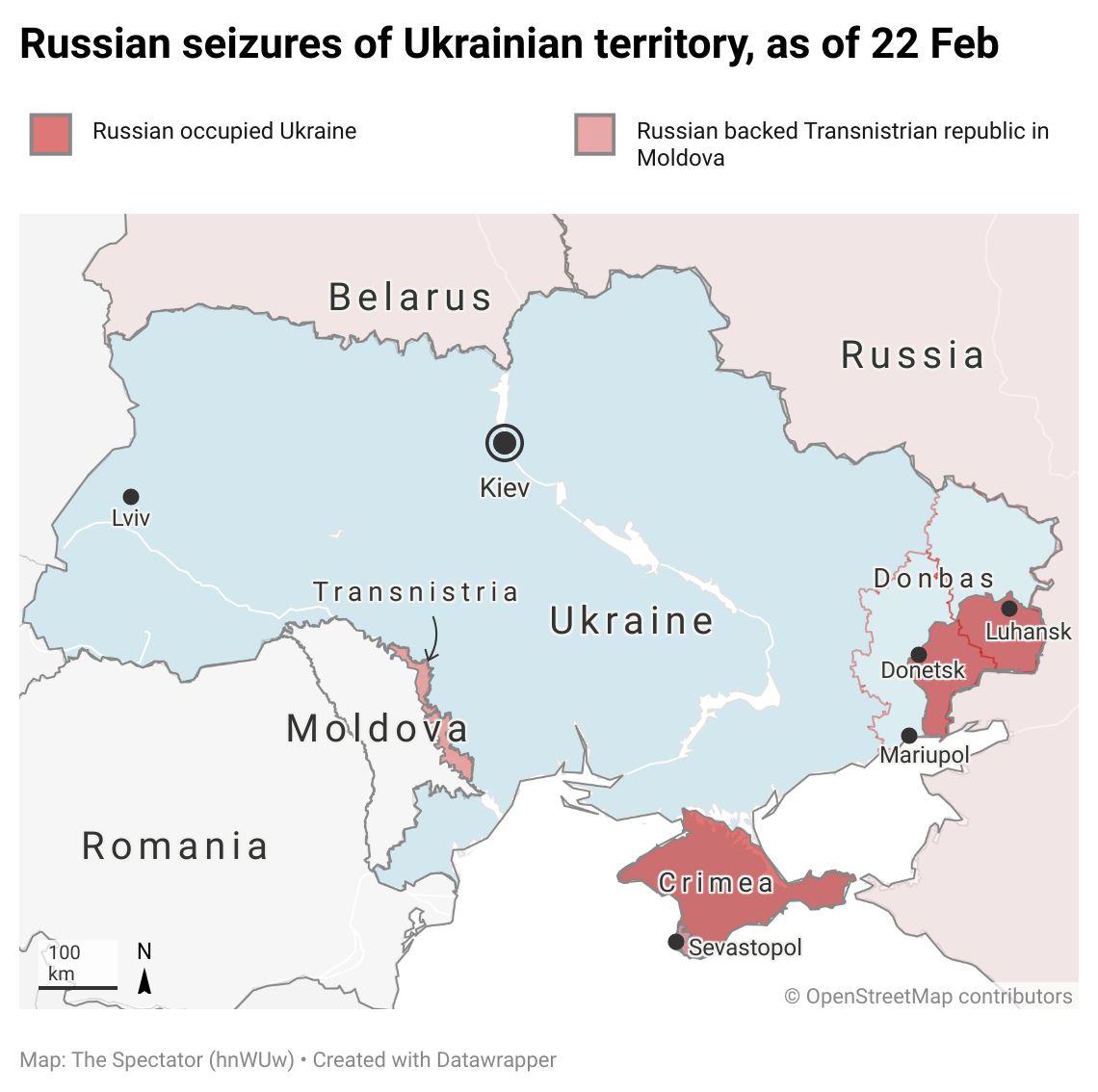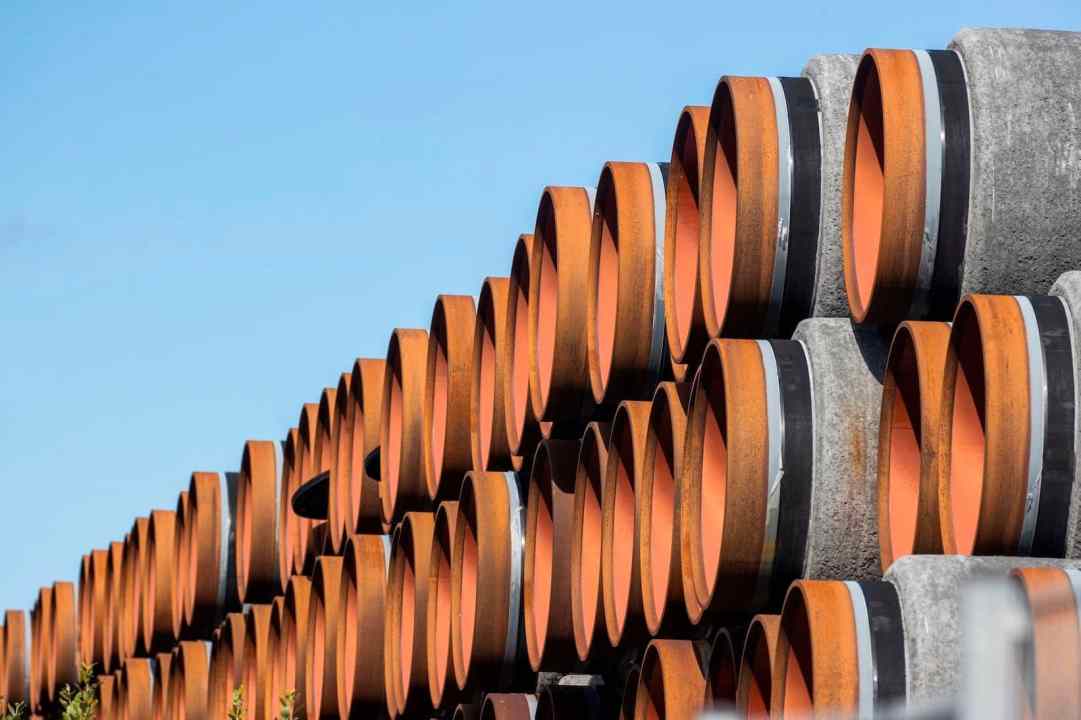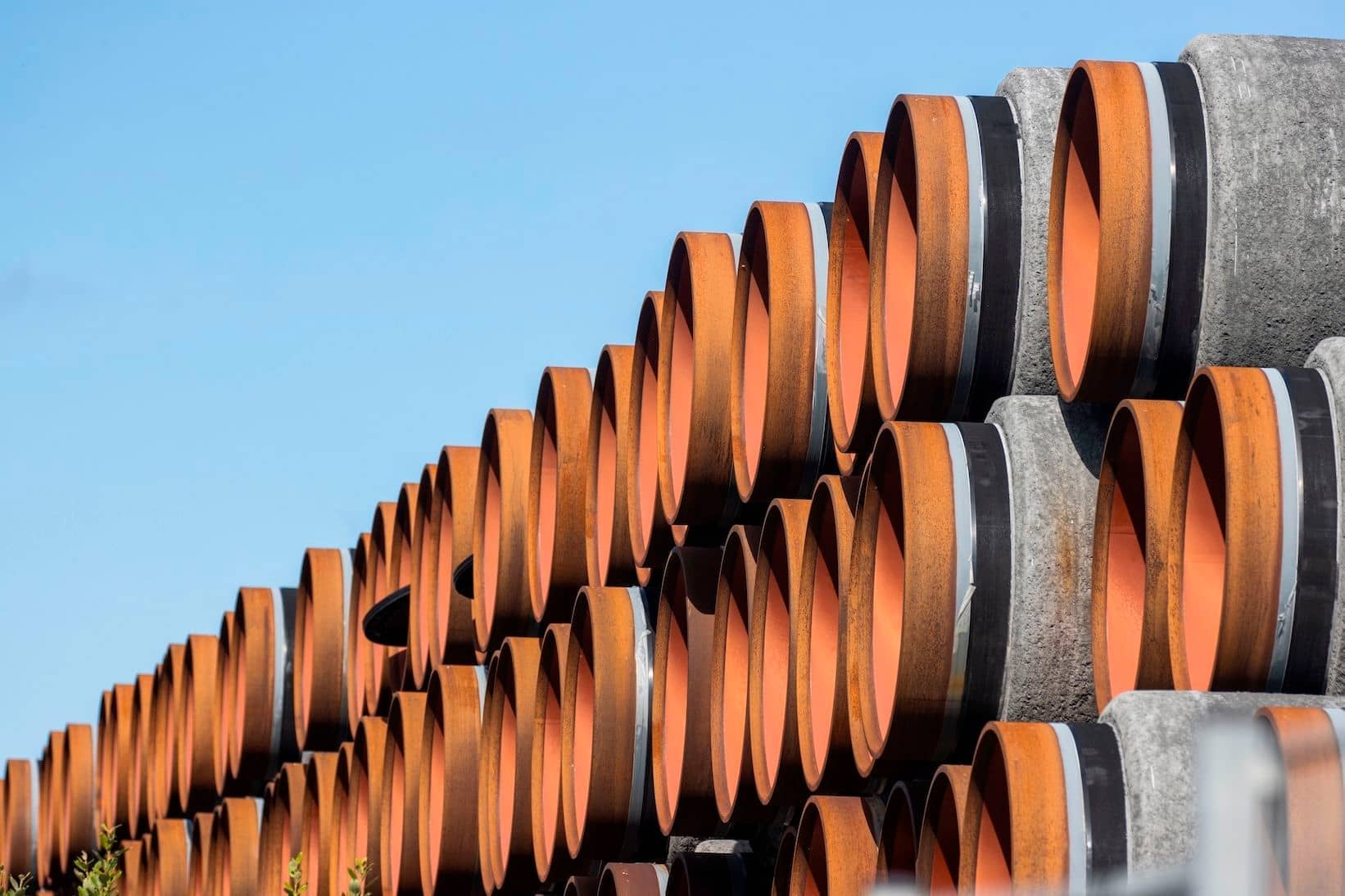Vladimir Putin’s threats towards Ukraine have, in part, been an operation in stoking divisions throughout the West. As James Forsyth explains in the magazine’s latest cover piece, it was just weeks ago that Germany was not on the same page as the US and the UK about what actions from Putin might classify as an invasion – and how such actions might trigger western countries to respond.
The obvious sticking point for Berlin has been Nord Stream 2: the now-completed gas pipeline running under the Baltics, built to transfer 110 billion cubic metres of gas supplies from Russia to Germany each year and bypass the current pipeline which runs through Ukraine. With Germany getting roughly 35 per cent of its gas supply from Russia, Germany’s energy policy over the past decade has been designed around increasing these imports. But this dependency on Russia for energy has been coming under strain, especially over the past year as Putin’s movements have become increasingly aggressive towards his neighbours.

No doubt Putin wants the pipeline too: state-owned energy company Gazprom covered roughly half the costs of the $11 billion (£8 billion) pipeline, and it’s seen in Russia as an opportunity to vastly increase state revenue from its gas reserves. So for weeks now, Putin’s game has been a balancing act between causing friction between western allies without losing the pipeline. But his orders last night to move troops into the Donetsk and Luhansk regions of Ukraine has tipped the scale. Germany’s Chancellor Olaf Scholz has just announced Germany will be halting its plans to certify the pipeline, explaining that ‘the situation is now a different one.’
This will have been a domestically painful decision for Scholz to make: at the start of this year it was estimated that over three million Germans would see their gas bills alone rise by 62.3 per cent due to the energy shortage crunch already felt acutely throughout the West. It’s hard to imagine Scholz has made this call without some assurance from America that some support will be given, not least other access paths to gas supplies that would have been supplied by Russia. Washington has already offered to talk to Qatar about increasing LNG (liquified natural gas) exports to Europe. On the whole, it’s a big diplomatic win for President Biden, who has been putting huge pressure on Berlin to cancel the pipeline.
Meanwhile Boris Johnson has announced in the House of Commons that the UK will be introducing sanctions on five Russian banks and three ‘high net worth’ individuals, whose assets will be frozen and who will be blocked from entering the UK. It’s marginal, compared to Germany’s big announcement, but Johnson will intentionally be holding back, keeping more options in his arsenal for if Putin pushes further into Ukraine. Still, expect questions to arise, especially from the hawkish wing of the Tory party, about whether he should have gone further now.
Canning Nord Stream 2 is far from the outcome Putin wanted. That doesn’t mean he’ll change tack, but it marks an important moment in western cohesion in their attitude towards Russian aggression. If Putin’s actions were a test in how far he can assert himself and his army before he gets meaningful pushback, he’s just got his first real shock of a swift, and painful, economic response.








Comments